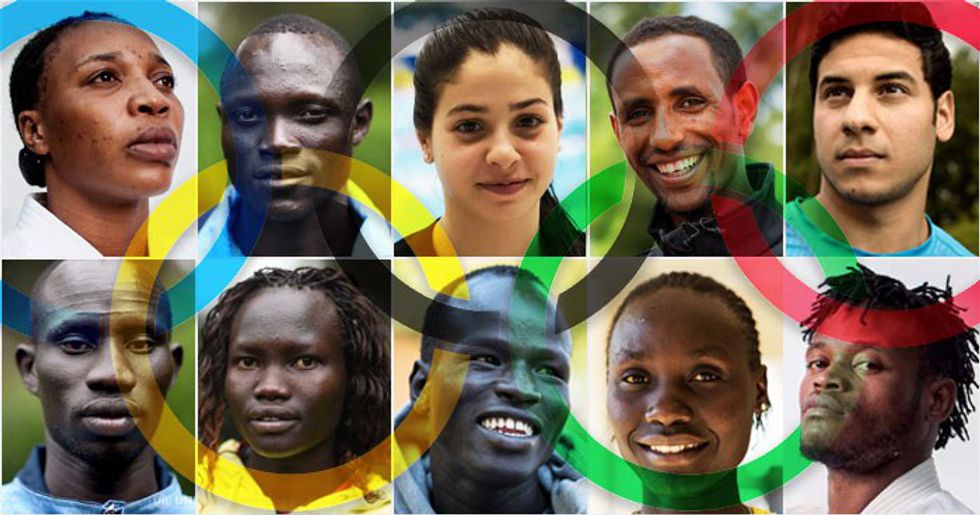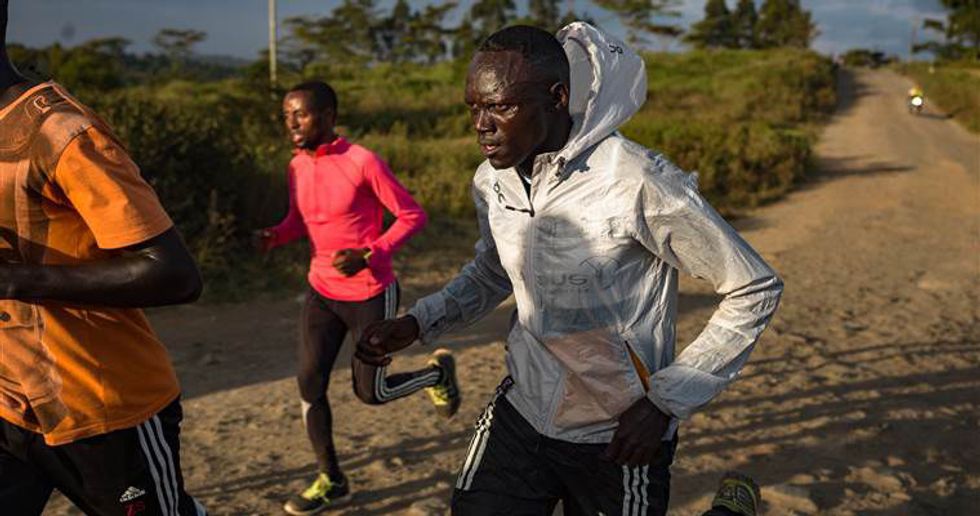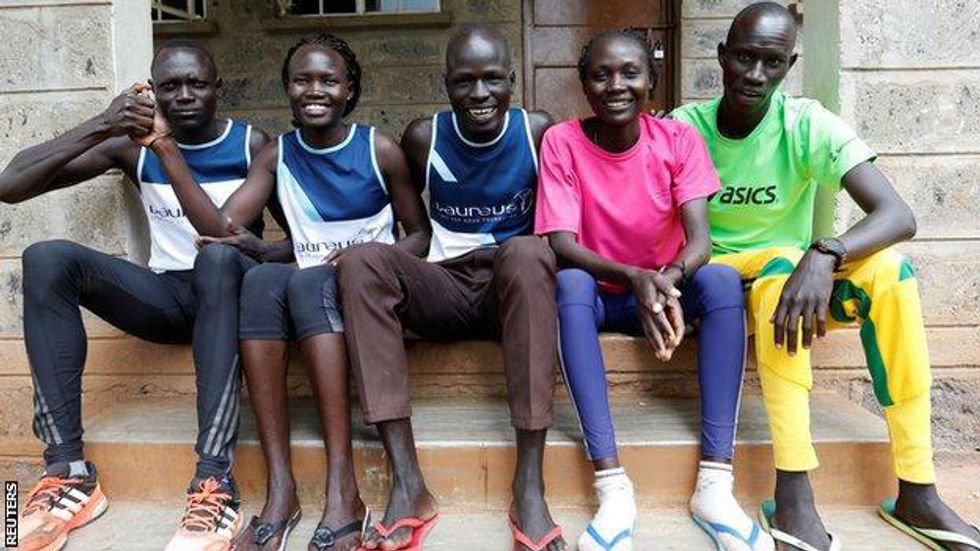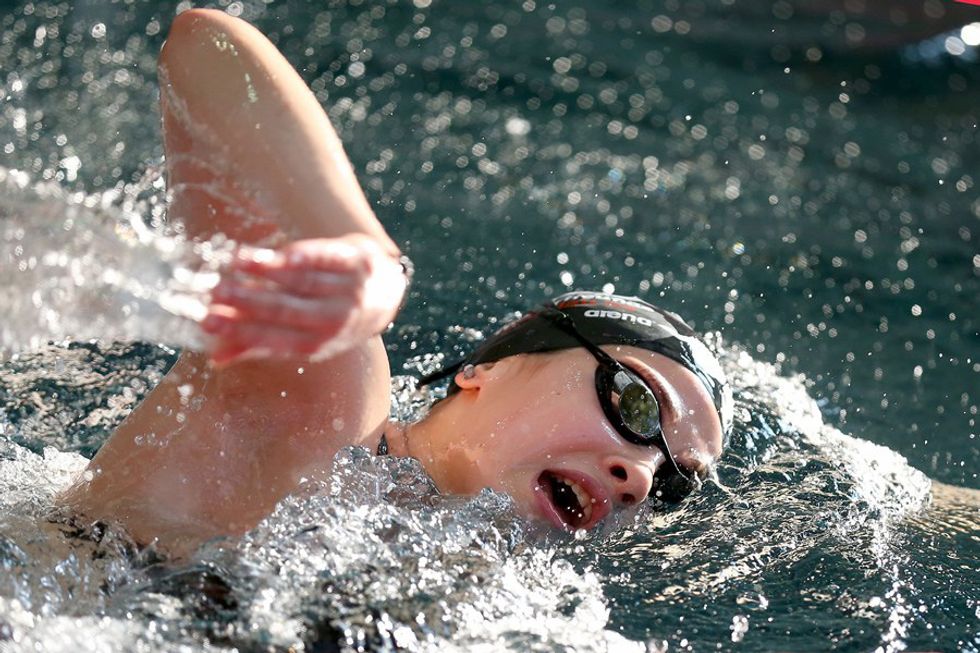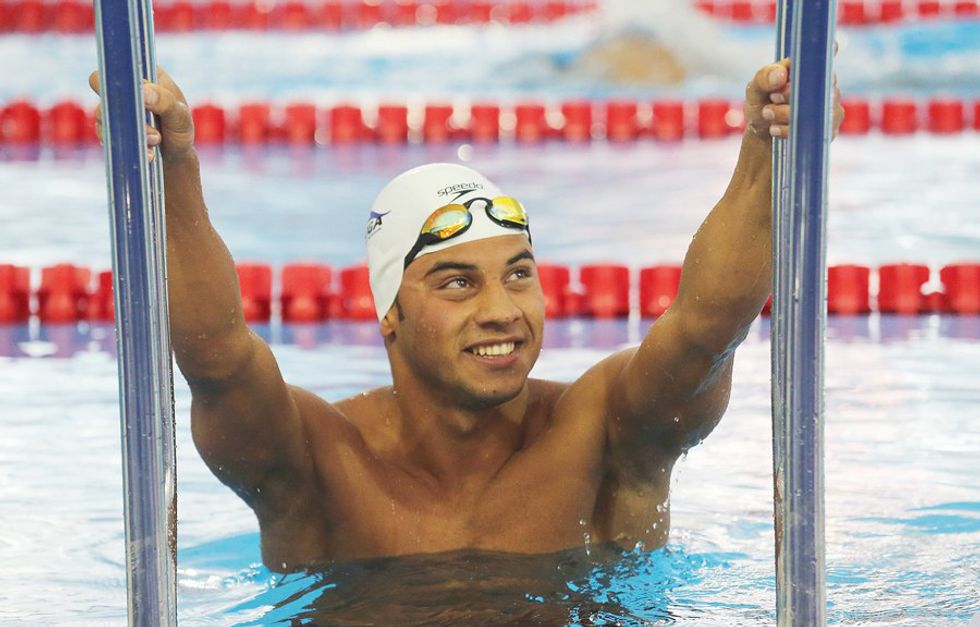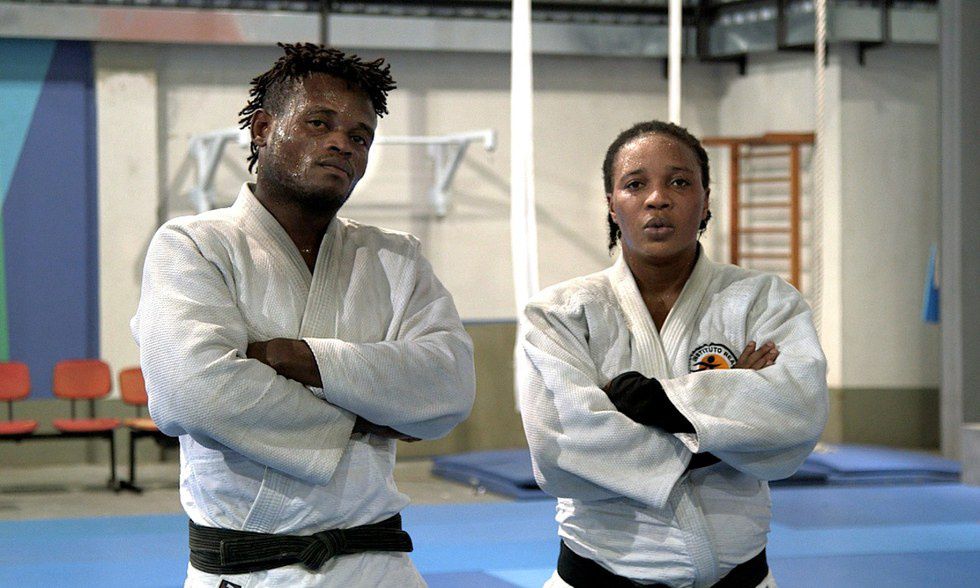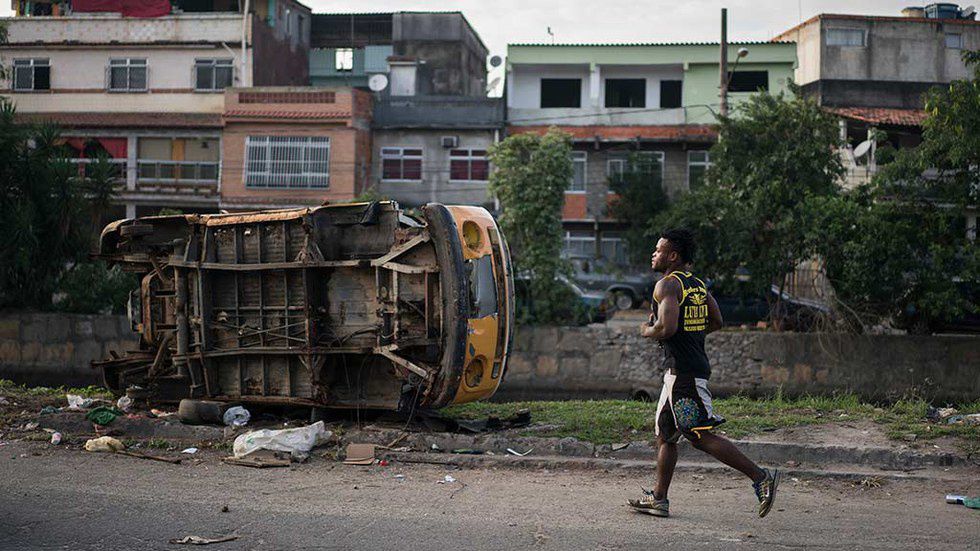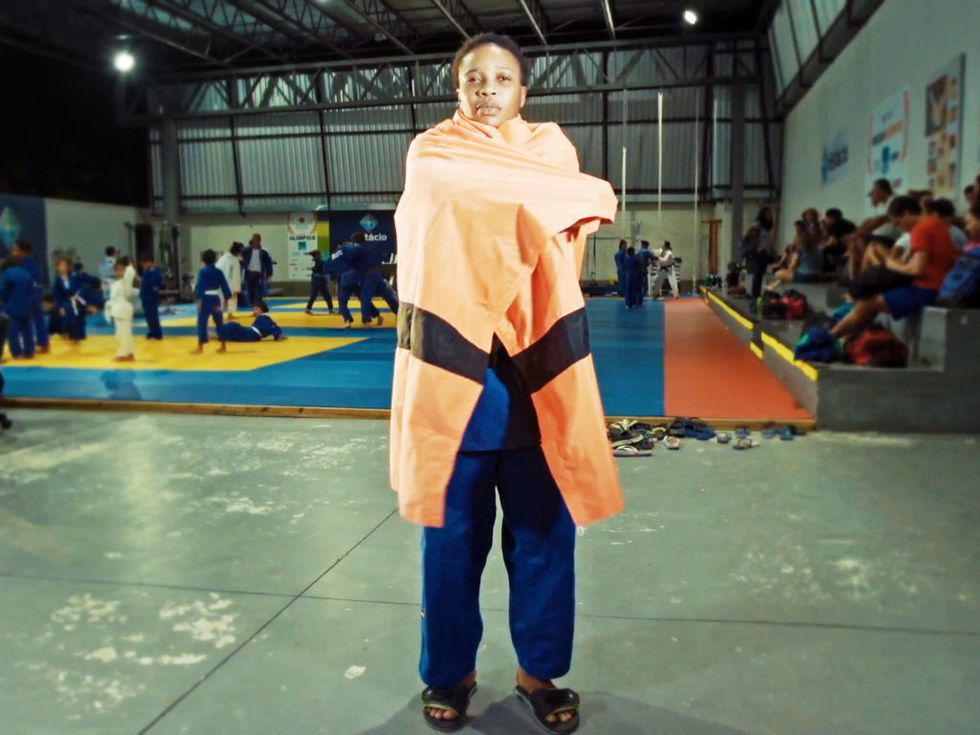According to dosomething.org, a refugee is described as "a person who is outside his or her country of nationality and can't return due to a well-founded fear of persecution because of his or her race, religion, nationality, political opinion, or membership in a particular social group."
As the 2016 Olympic games approached, International Olympic Committee President Thomas Bach saw an opportunity to focus global attention on the current crisis, and to give some of the athletes a chance to compete on the world stage. The IOC selected its first EVER Refugee Olympic Team consisting of 10 athletes who have been driven out of their home countries by violence.
"These refugees have no home, no team, no flag, no national anthem," Bach said in a press release.
"We will offer them a home in the Olympic Village together with all the athletes of the world."
1. Every member has fled his or her war-torn country.
2. These athletes are representing the some 65-MILLION forcibly displaced people around the world for the first time in history.
Never before has a Refugee team existed in the Olympics.
3. FIVE of the ten members are from South Sudan, including James Nyong Chiegjiek, who avoided becoming a child soldier.
When James was 11 years old, his father was brutally killed in the civil war. When he was 13, before South Sudan became independent, James left his home behind so he would not be recruited as a child soldier. He escaped to Kenya.
The other athletes from South Sudan are Yiech Pur Biel, 21; Paulo Amotun Lokoro, 24; Rose Nathike Lokonyen, 23; and Anjelina Nadai Lohalith, 21.
4. Yusra Mardini, 18-year-old swimmer from Syria, swam for three and a half hours, guiding a small boat with 20 refugees.
Heard this one, yet? Mardini is known for rescuing 20 people in a oat from capsizing after fleeing Damascus from the conflict in Syria. She used her talent in open water swimming to swim for three hours and help everybody survive the journey to Germany.
5. Shaken by the bombings and kidnappings in his hometown of Aleppo, Syrian swimmer Rami Anis had escaped to Istanbul in 2011 with two pairs of pants, two T-shirts and two jackets.
Four years later, the Anis paid smugglers to ferry him and his younger brother from Izmir to the Greek island of Samos. It took another nine days for them to travel overland through Macedonia, Serbia, Croatia, Hungary, Austria and Germany to Belgium, where they decided to stay.6. No Olympic refugees, however, have been flung farther than judokas Popole Misenga, 24, and Yolande Mabika, 28.
A civil war in the Democratic Republic of Congo lasting five years killed more than 5.4 million people, including Misenga's mother, before officially ending in 2003. Fighting in the east has since forced 450,000 people to flee.
7. Every time Misenga and Mabika lost a competition, their coaches locked them in a cage and limited their access to food.
Both fed up with the abuse, they escaped during the 2013 world championships in Rio and never left the city.
8. Guess what? These Olympians are anything BUT victims.
We are currently involved in a major political crisis over the fear of letting refugees seek asylum in some of the world's richest countries. The problem is, there exists a stereotype that refugees typically face... victim or villain. Though a bunch of positive images will prove difficult to erase the fear that "bad guys" will sneak into a country, these Olympians do not seek your sympathy. Take Misenga pictured above... he CERTAINLY isn't starving in a corner helplessly waiting for someone to come rescue him. Try again.
9. More than ever, refugees like the Olympians are staying in limbo for decades.
Fewer and fewer people are able to return home. That means that more people are being replaced, and fewer are finding solutions.
“I thought I would be in Turkey for a couple of months and then return to my country," says Syrian member Rami Anis. Months turned into years.10. The Olympic Team finally has it's own flag and national anthem.
As a powerful symbol, the flag is a banner of bright orange crossed by a single black band. These are the colors that evoke the life jackets so many refugees have worn on their journeys to safety. For the ROT, the Olympics are much more than winning gold medals.




